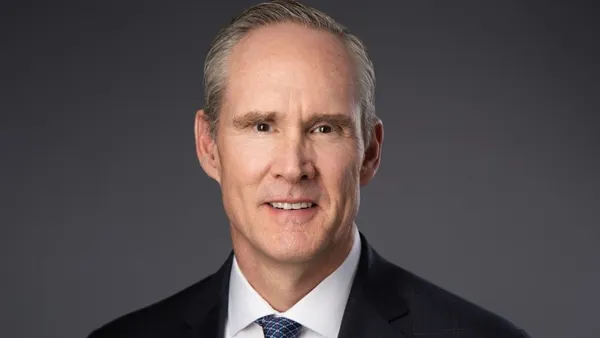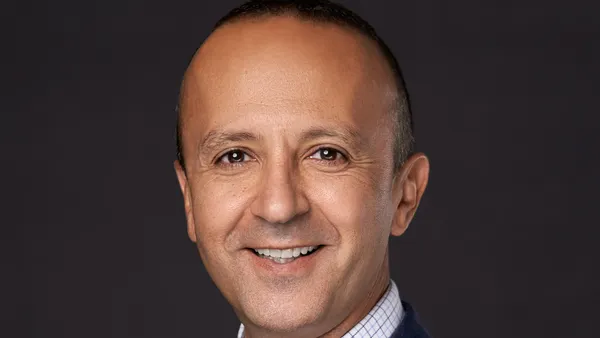Dive Brief:
- Embattled athenahealth announced it will be acquired for $5.7 billion ($135 a share) by Veritas Capital and Evergreen Coast Capital, a subsidiary of activist investor Elliott Management, capping more than a year of drama at the EHR company. Elliott has been pushing for an acquisition since it sent the company an unsolicited offer in May.
-
The Watertown, Massachusetts-based company will be combined with Veritas property Virence Health, formerly part of GE, and operate under the athenahealth brand. The deal is expected to close in the first quarter of 2019.
- The news comes after the software company disappointed investors with third quarter results, seeing revenues dive 9% year over year in earnings posted Friday. Investors seemed pleased with the buyout, though, pushing the stock up nearly 10% in morning trade.
Dive Insight:
Athenahealth has been under investor pressure for more than a year, with complaints on leadership and execution (along with a hostile takeover attempt by Elliot). The drama escalated in June, when co-founder and CEO Jonathan Bush stepped down following reports he assaulted his ex-wife.
At the time the company announced it was seeking "strategic alternatives."
But before Bush's exit, bullish Elliott made a $7 billion bid for the company and began looking for partners to make a complete acquisition.
Activist investor and Elliott chief Paul Singer, who runs the hedge fund, bought a 9.2% economic interest in the health IT company in May of 2017. At the time, Elliott said it would propose changes to the company’s operations, “as well as a potential sale."
In a May SEC filing, athenahealth's largest shareholder, Janus Henderson Group, reported it had pressed the cloud-based health IT vendor to sell after becoming concerned about management and execution of strategic plans. By the late-September deadline, the company reportedly had multiple bidders, including healthcare companies UnitedHealth and nThrive and investors Bain Capital and Thoma Bravo, according to analysts at Leerink.
Big news coming from Watertown, MA this morning. I'm glad that a decision has been made and announced and athenahealth can now focus on doing what they set out to - helping doctors deliver great care. https://t.co/M1UClS6ftx
— ZachPepperCunningham (@zpeppercHIT) November 12, 2018
Sales have waned for companies like athenahealth. The health IT vendor has been looking to new revenue streams as most hospitals have adopted EHRs, digging into its bottom line. Athenahealth has been trying to pivot to adapt its products for new consumers. It cut 9% of its workforce, sold its corporate jet, restructured management layers, and retrofitted its network to shift toward a platform-as-a-service EHR model.
Despite the changes, bookings are still down. Third quarter bookings were down 29% year-over-year, dropping to $46.6 million. To pile on, the company has lost a host of senior managers, including CPO Kyle Armbrester.
The newly-combined company will be led by Virence Chairman and Chief Executive Officer Bob Segert, according to a press release, and an management team comprised of executives from both companies. When the transaction is finalized, Virence's workforce management business will become a separate Veritas portfolio company under its API Healthcare brand.
Jeff Immelt, the former GE exec now executive chairman at athenahealth, said he believes the merger accelerates the company's goal to "transform healthcare."
"Combining with Virence will create new opportunities for collaboration and growth," Immelt said in a statement. "Operating as a private company with Veritas's ownership and support will provide athenahealth with increased flexibility to achieve our purpose of unleashing our collective potential to transform healthcare."
Athenahealth's board of directors has already unanimously approved of the merger agreement. Shares surged 9.3% in premarket trade Monday after the company confirmed its acquisition. Under the terms of the newly-inked deal, investors will pay $135 for each outstanding athenahealth share, representing a 12% premium to Friday's closing price of $120.35 and bringing market capitalization to $5.48 billion.
The company's stock has fallen 20% over the past three months.













